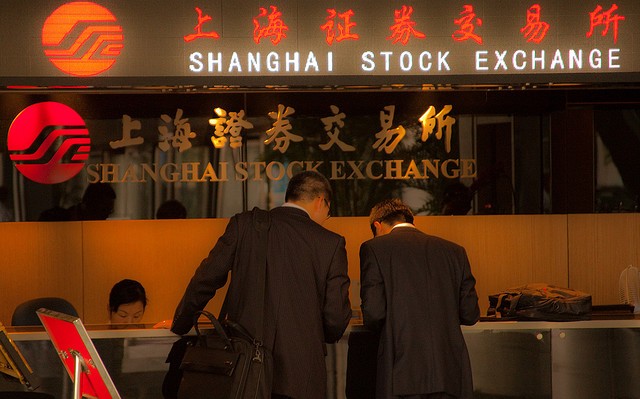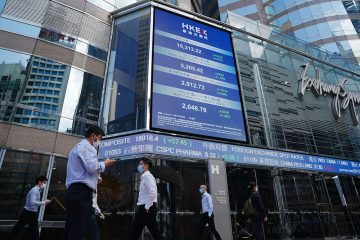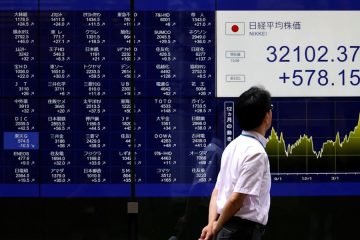China : Commodities, stocks slide as weak yuan spurs fears of liquidity squeeze

SHANGHAI : China’s stock markets fell and commodities prices plunged on Wednesday as government efforts to steady the sliding yuan currency and curb capital outflows added to fears of a liquidity squeeze in the banking system.
Analysts said moves by China’s central bank in recent days to shore up the yuan were sucking additional liquidity from the system even as banks and companies start to hoard cash as they typically do heading into the year-end.
State-owned banks were seen selling dollars for a third consecutive day on Wednesday.
That is pushing up borrowing costs, making investments in markets such as commodities and equities more expensive.
Capital outflows spurred by the yuan’s recent slide to 8-1/2 year lows in the face of a surging U.S. dollar are likely straining the system further, prompting authorities to intervene to steady the currency and discourage capital flight.
“The stress could continue for a while,” said Gu Weiyong, chief investment officer at hedge fund Ucom Investment Co, which specializes in fixed-income investment.
“Whether the situation gets better depends on the willingness of the central bank to inject more liquidity into the system.”
Coking coal and steel rebar futures prices were on track for their biggest one-day drop on record as the costs of borrowing money. Investors also sold base metals to shore up cash.
China’s commodities prices had already been in sharp retreat after major commodity exchanges introduced further measures earlier this week aimed at taming a spectacular months-long rally which many suspect has been fueled largely by speculation.
Short-term money rates spiked, while bond prices slid.
Short-term borrowing costs in Shanghai continued to rise, with the overnight Shanghai Interbank Offered Rate (SHIBOR) climbing to 2.3160 percent, its highest since Sept.30.
The overnight rate looked set to rise for the 15th session in a row.
The seven-day SHIBOR stood at 2.4960 percent, the highest since last August, while the 3-month rate advanced to its loftiest level since mid-February.
China shares also fell, with the blue-chip CSI300 Index down 0.7 percent and poised to snap a 7-day winning streak as raw material stocks weighed.
An index tracking non-ferrous metals in Shanghai dropped roughly 1 percent, after slumping 4.1 percent on Tuesday, the biggest one-day fall in 16 months. Meanwhile, coking coal futures plunged over 7 percent.
The volume-weighted average rate of the benchmark 14-day repo traded in the interbank market, a gauge of measuring general liquidity in China, shot to 3.6935 percent, the highest since January.
Bond yields, which move inversely with prices, also rose.
Benchmark 10-year treasury yields advanced to a five-month high of 2.943 percent, while 10-year treasury futures on Wednesday touched the lowest level since late April.






